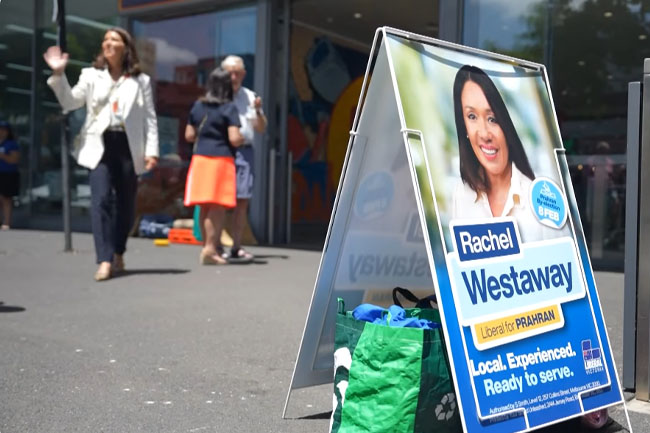If you’re not faint hearted, and your mind, spirit and soul are open to hearing some hideous home truths about a particularly dark chapter in Australia’s history, you need to read this incredible tale of survival.
This memoir A Long Way From No Go, outlines Indigenous Australian woman Dr Tjanara Goreng Goreng's struggles to overcome myriad adversity. But more than that, it also inspires fierce and unwavering resilience by detailing the fraught childhood Tjanara endured and survived to recount, retell and now candidly offer to share with the general-public. The power of Indigenous storytelling has not been lost in this poignant memoir which follows her remarkable life journey.
Tjanara’s is a voice that needs to be heard all the way around Australia. In particular, it may serve of interest to childhood trauma victims, to Australian political and history buffs, and to the Catholic Church that harboured and turned a blind eye to paedophile priests amidst their ranks.
This tale is a rude awakening about the evil atrocities committed by members of the Catholic hierarchy and the way in which their behaviour was systemically tolerated, accepted and swept under the carpet. This occurred by relocating priests from a variety of parishes to new places, with access to more children whom they could perpetually victimize and abuse.
I would recommend this book highly to Indigenous activists, young women and feminists, Australian political academics and heavyweights as well as any Australian who has ever felt the pangs of marginalisation, systemic racism or suffering more generally. While I found that this story was, at times, emotionally challenging reading, this particular tale provides incredible insight into the endurance and survival of one young girl against most of the traumatic big-ticket items life could throw at a little person.
It encapsulates the cathartic powers of story-telling and Tjanara’s voice is one that needs to be heard the country over. The existence of this book and its power is a step towards reckoning for Indigenous Australians, for Tjanara, for the Catholic Church and the inherently and systemically racist conservative governments and politicians, as well as public bureaucrats of Canberra.
More than the aforementioned though, this memoir encapsulates the remarkable survival of the little girl, once born Pamela Williams born at the isolated "No Go Station" near Longreach. It bespeaks horrifying prejudice, physical and sexual abuse as well as mental health challenges, addiction and separation brought about by systemic and indoctrinated racism.
Happy NAIDOC Week! GLPers with Prof. Tjanara Goreng Goreng celebrating Aboriginal culture & history. pic.twitter.com/JDeG3kqgw0
— GLP - Macquarie Uni (@GLP_MQ) July 4, 2016
The book itself serves as an absolute testament to this survivor’s inner strength and spirit. It needs to be made available in every tertiary university in this country and placed on recommended reading lists for historical and political reasons and contexts, along with its poetic telling, which gripped me into reading it in a solid session.
Tjanara’s is not only a tale of survival overcoming abhorrent child sex abuse and the hands of multiple Catholic priests, including Queensland’s notorious paedophile priest Leo Wright. In it, she speaks frankly and candidly about the blatant racism she experienced growing up as an Indigenous woman struggling for self-determination against the odds in Australia.
There are moments of hilarity and wickedly portrayed humour where Tjanara details unique flaws in human nature and political figures, from Bob and Hazel Hawke to the permanently stoned press gallery journos of Canberra back in the 1980s. Tjanara recounts these stories based in Canberra from the time when she was living with the father of her daughter.
This memoir not only unflinchingly recounts her survival through childhood trauma of abuse, but also details her struggles against addiction, mental health challenges (which saw her become suicidal) and familial dysfunction. Her flamboyant public policy career is a testament to her spirit and unwillingness to fade amidst the predominantly White bureaucrats or migaloo of Canberra.
Tjanara’s Aboriginal activism eventually saw her turn whistleblower. Ironically, she was charged subsequent, for alleged breaches of the Crimes Act, against her Government employer in relation to the NT Intervention of the Howard era. This story portrays the scheming and blatant lies fed through government by the manipulation of mainstream media, which with documented evidence Tjanara leaked and had publicly called out through her journalist contacts.
It’s a tale of reckoning that deserves every acclaim and if you dare to invest it will grip you into the dark and occasionally lighter realities of a particularly terrible chapter in Australian history; told with a truly unique perspective of a little girl who dared to survive it all.
This memoir was created alongside Fairfax columnist and academic Julie Szego and can be purchased for $29.95. It has just been released by Wild Dingo Press. (Paperback, 288pp.)
So... here's a book I'm REALLY looking forward to reading! By my friend Tjanara Goreng Goreng. Out in September!!@WildDingoPress #literature #indigenous #BecauseofHerWeCan pic.twitter.com/ek03fiFFW6
— Steve Robson (@DrSteveRobson) July 12, 2018
You can follow Naomi Fryers on Twitter @Naomi_Fryers.

This work is licensed under a Creative Commons Attribution-NonCommercial-NoDerivs 3.0 Australia License
Monthly Donation
Single Donation
10 people in Australia are looking for work for every job available. So how can we introduce social policy to reduce unemployment and homelessness? Tjanara Goreng Goreng has the answer #tedxcanberra #ideasworthspreading pic.twitter.com/ticv8xNnaR
— TEDxCanberra (@TEDxCanberra) July 6, 2018
Face the truth. Subscribe to IA today!











